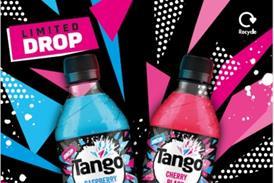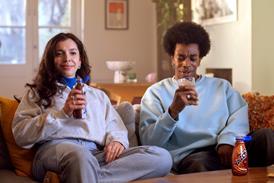What do you think of the current Trading Standards' test purchasing regime?
Arjan Mehr: The feeling of 'entrapment' and 'guilty-as-charged' still persists. It is totally unfair as the whole thing relies on judgement and ID cards, which can often be overlooked if the person appears to be more like 21 than 15. This then leads to good stores with good standards being punished. The government should focus on having national ID cards operated by schools. The schools could then use the cards as a tool for attendance checking etc. Trading Standards should spend more time on identifying stores that lack basic training and checking procedures. These stores should then be given support on how to follow procedures and if they still persist on not keeping up with the standards then perhaps they should be punished.
Karl Rasmussen: The current age-related testing scheme in our area seems to be independent-based - they print details in the local paper of those who have passed and failed test purchases, but it only seems to be targeted at independent stores, not at the large multiples.
Raj Chandegra: It isn't fair when they use someone who looks 18-plus. If they used young kids and we sold to them, that's wrong and I would accept that, but when they're dressed in clothing and jewellery to make them look older, that's unfair. When you're really busy, you might look at someone and think they're over 18.
Barrie Seymour: It's rubbish. My son was asked by a police officer to be a test purchaser and he's 13 years old. There are some unscrupulous retailers out there but those who are doing it right are getting penalised, too.
What do you think of the proposals to introduce yellow and red cards for failed test purchases?
AM: It's a complete waste of time and the guilty would just laugh at you. It's some 'jobsworth's' idea of how to combat the problem. Pathetic is the word.
KR: The proposed card system would give some retailers the chance to educate their staff before they lose their licence. A yellow warning card would alert staff to the fact that due care and attention needed to be paid when serving customers. That said, I still think that a national ID card system would make it easier for all concerned.
RC: These people should look at the merits of the retailer and how responsible that retailer is in the running of their store, such as making proper use of refusals log books. People do make mistakes sometimes - we try not to - but if it's busy, mistakes can happen.
BS: I think it needs to be three strikes and you're out; not just two cards but two yellows and then a red. And are they going to do this in the multiple sector as well as in independents?
Do you think some retailers deliberately sell to the under-aged?
AM: No, they don't, but some lack checking procedures or deliberately overlook borderline cases.
KR: Some retailers do not seem to have scruples about selling to underage customers. Unfortunately this makes it harder for those of us who try to abide by the law.
RC: Most are law abiding now, especially since the law became stricter. I know someone who used to blatantly sell to youngsters but over the past couple of years, he's calmed down. The law is stricter now and retailers don't want to lose their licence. It's now a very small number who jeopardise things for all of us. People tar all independents with the same brush.
BS: Yes, I think one or two people who are struggling for trade think they might take a risk. If a member of my staff is caught doing it, they will be fired - that's in their contract.
What do you do in the way of staff training on age-related sales?
AM: Staff would have, as part of their induction, been taken through the law and the consequences of failing to follow procedures. We don't do our own test purchasing.
KR: We do not do our own test purchasing, but all staff are given guidance when they first start with us and this is regularly updated. There are reminders in the till area about what products are restricted and the age restrictions that apply. There's also a till alert when all age-restricted items are scanned asking the till operator to confirm the age of the customer.
RC: If we have a new member of staff coming, their induction has a heavy bias towards trading in age-related products. The rules are explained, and every now and then, when we have staff meetings, we remind all staff about them. Every year Trading Standards comes to the area and when we know that's happening, we put notices up by the till reminding staff to be extra vigilant and ensure they make the proper checks before serving someone. We don't do our own test purchasing but we keep an eye on the refusals log book and make sure staff are filling it in.
BS: We do the Londis course for age-related trade. We do the level two NVQ in retail operations and that includes loads on age-related sales.
Is proxy buying much of a problem in your store?
AM: All stores have that without fail, but we do not think it is a problem for us.
KR: We have had problems with proxy buying but if we suspected that a customer is buying for an under-age individual then we will challenge the customer and make them aware that they are committing an offence and can be fined. We will also refuse to serve age-related products to these individuals even if they claim it is for their own personal use. We are aware that at weekends youngsters hang around near our store and we will go and warn them off if we feel that they are approaching customers or if a customer complains that they have been asked to buy something for them.
RC: Proxy buying isn't so much of a problem as it used to be but it comes in phases - you have it for a little while, then it goes away. It depends on who the leader of the gang is. Our shop front is open so we can see onto the pavement. It could happen around the corner, but we do keep an eye out for it. Independents are an easy target.
BS: I know of some parents who buy alcohol for their kids. If they come into the shop together and we can see that the child is telling their parent what they want, we won't serve them.
Where do you think kids are getting alcohol from?
AM: Proxy buying is the main source as buying is becoming more and more difficult due to the increase in the quality of shops and consequently less availability.
KR: Some of them get it from home, either by stealing it or because parents are too easy going and allow them to have alcohol. Letting children have a drink on a special occasion is a far cry from actually going out and buying alcohol for your children and their mates to consume unsupervised. I also know from personal experience that youngsters can buy alcohol from self-service tills in the large supermarkets without any challenge from a staff member.
RC: From friends or parents - parents less so, though. I'd like to think that parents are responsible. Some people also steal the alcohol.
BS: In the multiple sector. I was in a pizza shop the other night and three lads (who I know are all 19 years old) were carrying Tesco bags of alcohol, and with them were some 13-year-old kids who were smashed out of their heads. As a community retailer, we know who the irresponsible ones are, but at a 25-lane supermarket, a 19-year-old can walk through a lane and buy alcohol legitimately, and then go outside and give it to whomever he wants. It's where the government is going wrong. If a multiple gets done in a test purchase, it tries to keep it all in house - you never see a Tesco Extra having its licence shut down. In our area, the kids carry their alcohol in a Morrisons or a Tesco bag. Perhaps the government should should change things so that when a supermarket opens, if there's enough off licences within its postcode, it doesn't get one.
Do you think price is a factor in under-age drinking?
AM: Yes - alcohol is now cheaper than water and milk! The drinking culture in pubs and clubs has also played a part. Getting drunk is now accepted as part of having a good time. Also in a bizarre kind of way drink-drive enforcement has got people to drink more as the worry of drinking to excess is gone as taxis are now a means of transport.
KR: I personally do not think price is a factor, youngsters seem to have more money than adults to spend.
RC: I don't think price is a big factor. Beer and alcohol are very cheap but I think that even if you increased prices by 50p, they will still try and get it.
BS: Supermarket prices are absolutely disgraceful - they're giving it away. No wonder the kids are going mental.
Are supermarket prices and special offers irresponsible?
AM: Yes, because predatory or below-cost pricing has become the norm, especially in lager and beer. Manufacturers are just as irresponsible, but in their defence, they would claim that supermarkets are blowing their marketing budgets on alcohol to undercut and there is nothing they can do about it.
RC: When you can get a case of beer for £10 or even £8 in the supermarkets, a few friends can afford to get a case together and will drink that whole case. Supermarkets are irresponsible in that sense. When they do deep-cut pricing, it fuels the problem slightly.
BS: When you can buy 20 bottles of Stella for £16, it's cheaper than water. But nobody bats an eyelid. Asda is selling stuff so cheap it's untrue.
The possibility of increasing the age to buy alcohol to 21 has been raised but only for the off-trade. Would that be fair?
AM: It is absurd that this is the very government that thought about lowering the voting age to 16 and is now considering that people under 21 are not worthy of taking responsibility for their drinking. Young men in the army are considered responsible for going to war yet can't buy alcohol. The whole thing is nonsense. I fail to see the logic of raising the age even higher. Of course children of a certain age should not be exposed to alcohol, but 21 is a joke.
KR: The increase of the age from 18 to 21 should be across the board, if it is going to be brought in at all.
RC: It's ridiculous. Do you think that people who drink in a pub drink responsibly?
BS: That's not very clever is it? People would just buy a bottle of wine from the pub and take it out. It's a bad idea. We've got a nice round figure now with 18 for cigarettes as well.
Do you think pubs are right to blame supermarkets and the off trade for under-age drinking?
AM: I fail to see what the off trade and supermarkets have got to do with pubs.
KR: It is not the irresponsibility of the small retailer - certainly in our area we are aware of many under-age drinkers going into pubs and clubs obtaining alcohol. The lighting in pubs and clubs does not always allow the bar staff to get a good look at the customers and if you get young girls with make-up on they can certainly look much older than their years.
RC: A lot of pubs have smoking areas and beer gardens now so they're only checking the person who buys the drink at the counter - they don't know who's drinking it outside.
BS: I don't think pubs are right to blame the off trade, but the whole situation for the off trade is driven by the multiple sector.

















No comments yet